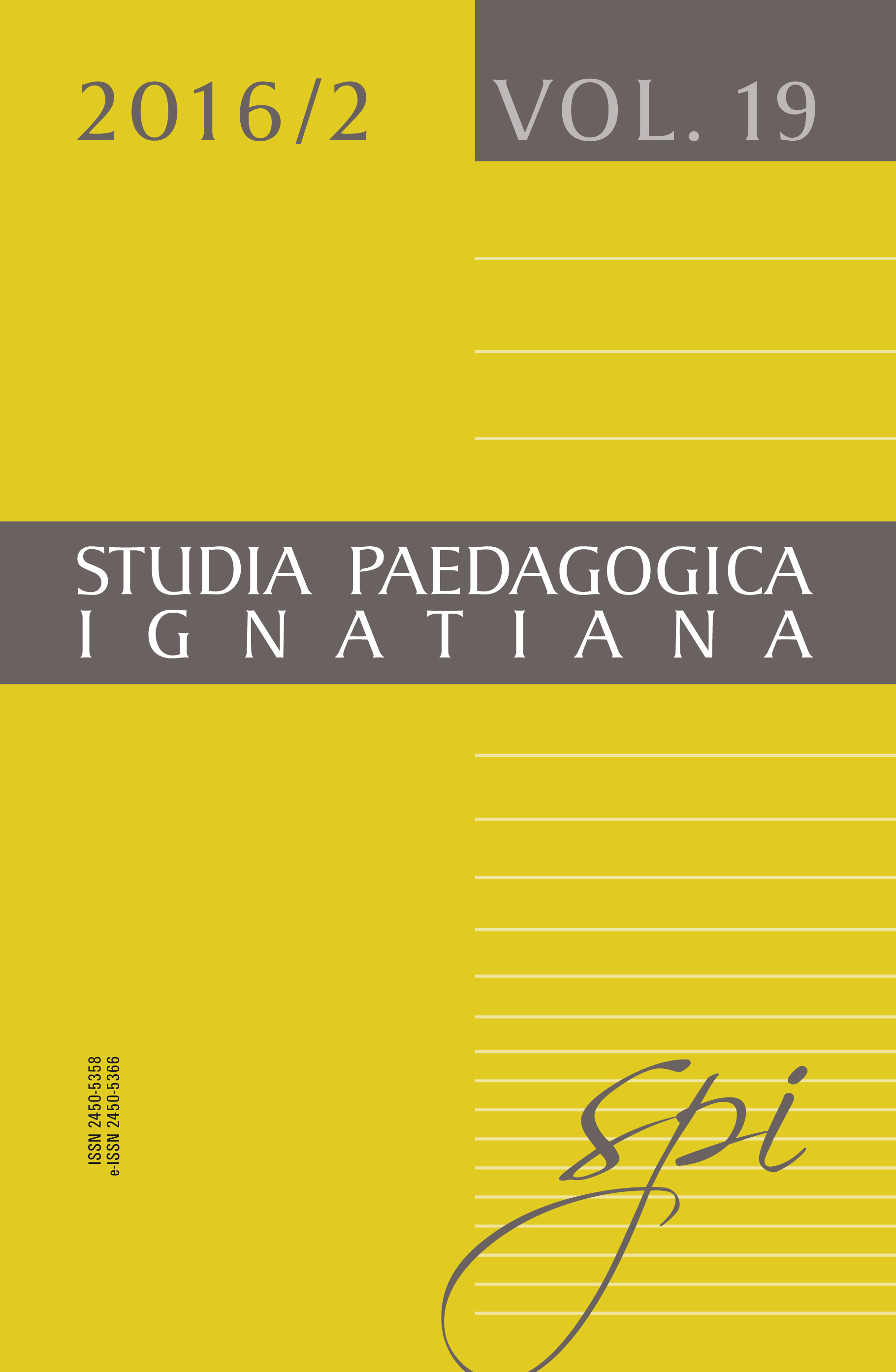Wychowanie moralne i religijne ubogich i sierot w Krakowskim Towarzystwie Dobroczynności w latach 1816–1918
The Religious and Moral Education of the Poor and Orphans in the Krakow Charity Association in the Years 1816–1918
Author(s): Ewa Barnaś-BaranSubject(s): Social Sciences, Education
Published by: Uniwersytet Ignatianum w Krakowie
Keywords: Cracow Charitable Society; poverty; charity; care; orphans
Summary/Abstract: The aim of the article is to present implemented in 19th century by the Cracow Charitable Society the moral and religious education of the poor. In the plant of the Society lived aged and old people, with health problems, who lacked of their own forces to earn for living. Wards were also the orphans from 10 to 16 years old (after 1874 the Society accepted even six years old children). The daily care for them was organized, with putting the emphasis on eliminating negative behaviors and habits, they were urged to live a life in accordance with the moral and Christian values. Analysis of source materials, especially the statutes, regulations and instructions made it possible to show how the wards were brought up in order to be in the future the “useful members of the community”. The staff of the Society fought especially with attempts of begging and alcohol abuse. During the enrolment the staff checked if the candidates’ behaviour was in line with moral standards and if they were diligent enough. Daily routine was carefully planned: there was a time of prayer, of work, care was taken to spend in a fruitful manner free time. The staff stressed the value of mutual kindness, respect shown to each other, and towards the benefactors. The wards were taught how to care for their own belongings and for what the Society provides to them. Failure to comply with regulations was punished. Penalties had a definite gradation, the staff always sought to give reprimands first. The system of awards and compensations was introduced in order to motivate pupils for proper conduct. They were rewarded for diligent work, learning, and allowed to participate in celebration of religious holidays. For orphans the picnics, tours were organized. The permission to see families and to go on holidays were also given.
Journal: Studia Paedagogica Ignatiana
- Issue Year: 19/2016
- Issue No: 2
- Page Range: 65-85
- Page Count: 21
- Language: Polish

